Branding, when viewed through the emotional landscape, reveals a spectrum of emotions that brands leverage to connect with consumers. Many brands build their identity around optimism, positivity and other familiar emotions – whether it’s joy, nostalgia, or even the bittersweet pull of familial sadness. These emotions tap into what we love, cherish and aspire to, drawing consumers in with a feel-good connection and creating a more meaningful bond. But there is one powerful emotion that rarely gets the same spotlight; it is less explored but equally as compelling, and that is fear.
While fear may initially seem unsettling, it often triggers a controlled thrill when experienced in a safe environment. Think riding a roller coaster, watching a horror movie or walking through a haunted house experience – these instances allow one to feel excitement and adrenaline rush without actual danger. Beyond this enjoyable sensation, fear can also build a sense of camaraderie and strengthen social connections if shared through a collective experience followed by relief, enhancing feelings of belonging and improving relationships.
Leveraging this unique psychology of fear, fear-based branding also taps into a primal instinct that is highly effective in not just attracting attention, but also ‘scaring’ one into taking action, driving engagement through urgency and anxiety. While some brands leverage fear-based branding directly, where the fear is explicit and bold in expression, most actually take on a more subtle and indirect approach, where the surface communication remains positive and reassuring, yet the core proposition plays on fear. The latter takes on fear in a more understated manner; it is more nuanced where brands can create the same effect as intended if carefully harnessed without explicitly overwhelming consumers with negativity.
With Halloween just around the corner, it is a perfect time to explore how fear plays a hidden yet impactful role in building the equity of some famous brands and shape consumer behavior.
Throwback to the iconic brand tagline that was widely advertised in Head & Shoulder’s shampoo commercials in the 1980’s ‘You Never Get A Second Chance To Make A First Impression’ – the emphasized importance of first impressions and the fear of making a bad one has been part of the brand’s brand and marketing strategy for many years. Head & Shoulders is a classic example of tapping into the fear of unattractiveness in its branding by positioning itself as the go-to solution for visible flakes, the trusted ally that addresses the self-consciousness and embarrassment associated with dandruff.

By aligning itself with societal norms, the brand effectively speaks to consumers by underscoring the anxiety they have over their appearance and personal image, transforming that fear into proactive behaviour.
Through consistent communications and social proof and validations, Head & Shoulders managed to build brand trust and equity over the years that reinforced its relevance and efficacy, anchoring its status as a leader in the anti-dandruff category and fostering lasting loyalty among those who desire to look and feel their best.
Red Bull effectively uses the fear of missing out – as one says, FOMO, by positioning itself than more than just an energy drink but an enabler of an extraordinary lifestyle. The brand connects itself with extreme sports and adventures, associating with daring stunts and boundary-pushing events, suggesting those who do not consume Red Bull are missing out on very unique, exciting and high-adrenaline experiences.
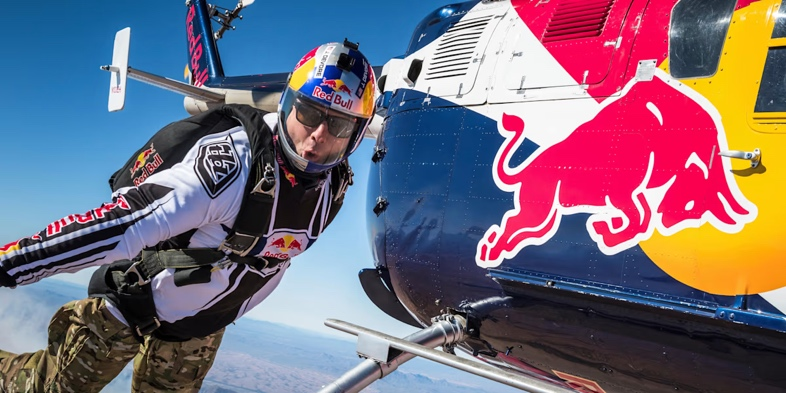
Whether it is through its brand sponsorships and presence at high-energy events or through its world-famous brand tagline ‘Red Bull Gives You Wings’, the brand fosters the idea that those who do not engage with Red Bull are missing the chance to live life at its fullest.
This plays directly to the fear and anxiety of not just being part of exhilarating experiences, but also a chance to belong with the cool, fearless and exclusive daredevils and elites.
This year, Gatorade announced the return of its iconic brand tagline ‘Is It In You?’, a powerful call to action that challenges athletes and consumers to reflect on their inner drive, physical readiness and mental toughness. Yet, this tagline also serves anotherpurpose – it speaks directly to the fear of not being able to perform at peak, subtly questioning if one has consumed Gatorade – a necessary to fuel one’s best performance with essential hydration and nutrients.
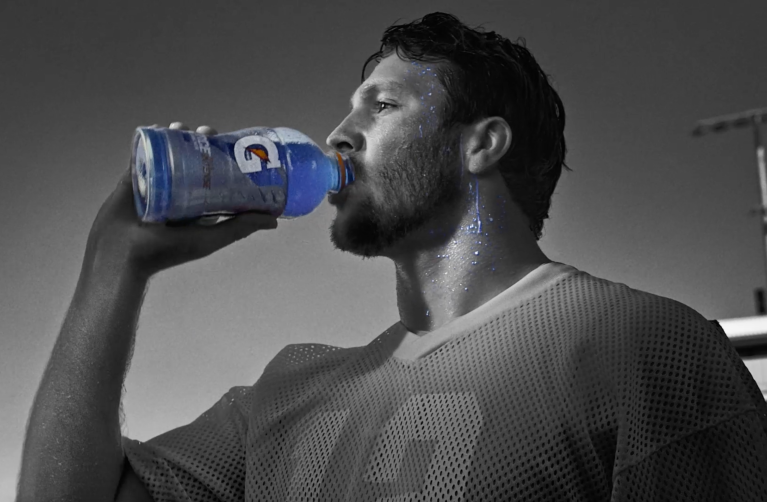
On one hand, it invites consumers to introspect, asking whether they have the right traits, skills and capacity to excel, while on the other hand, it taps onto the anxiety of not having the vital support and replenishing benefits of a Gatorade’s, risking underperformance or being unable to compete effectively and potentially falling short of one’s goals.
As the world’s most superior sports drink, the clever strategy of fear-based motivation resonates deeply with both professional and everyday athletes, pressing action and reinforcing the brand’s position as essential for physical endurance.
Slack capitalizes on the fear of workflow disruption and loss of productivity by positioning itself as the ultimate solution for seamless communication and collaboration in the workplace. The brand prides in sharing successful stories of enterprises of different sizes and industries on how efficiency abounds in a workplace where Slack is present, and how unnecessary stress and mess happen in one without.

Today, Slack’s brand tagline ‘Where Work Happens’ suggests that the platform is a hub where all essential work activities occur, highlighting how it eliminates scattered workflows and fragmented communication by bringing all conversations, apps and customers together in one place.
Through this approach, Slack became a brand synonymous with workplace efficiency, transforming the fear of disruption into a proactive choice, ultimately building brand trust and loyalty among those who seek to avoid chaos in their workflows.
Fear of God masterfully plays on the unique duality of fear – one rooted in spiritual reverence, and the other in the fear of being ordinary. The former, through its name, taps into the awe, reverence and respect traditionally associated with religious fear, particularly in Christianity. This is reflective of the humility and accountability in the face of the divine, conveying a sense of seriousness, reflection and depth and resonating with consumers who view clothing as an extension of identity and belief.

On the other hand, the latter channels the modern fear of sameness, tapping into the aversion of looking the same as anyone else and being seen as mediocre.
By positioning itself as a label that refuses to conform and creating highly distinctive styles of high fashion infused with street culture, Fear of God speaks to audiences who express a deep desire to stand out and avoid blending in the crowd. An understated luxury, this play on fear is a successful driver for those seeking exclusivity, individuality and an escape from the ordinary.
Whether it is the physical sensation of discomfort and pain, the psychological fear of losing control, the memory of previous unpleasant experiences, or the perception of danger associated with spice, many individuals tend to approach spicy foods with caution. Yet, Samyang boldly leverages the fear of spice to create a captivating brand identity that resonates with not just adventurous eaters who traditionally enjoy the savory thrill of spicy foods, but also those who are originally wary.
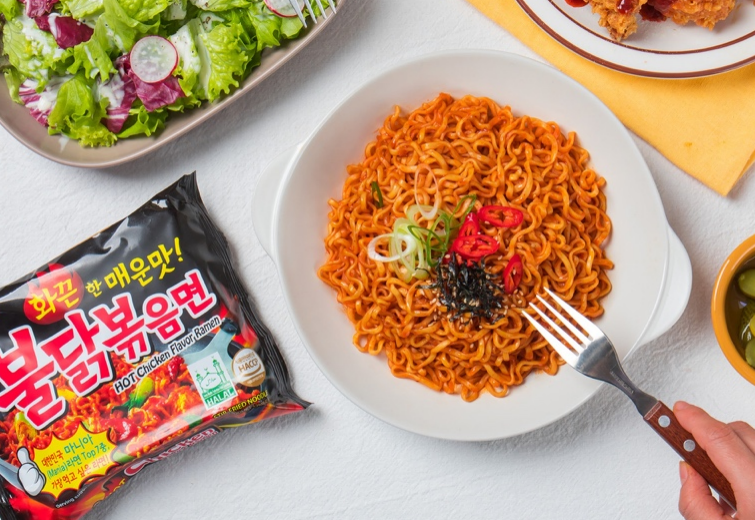
By positioning its products as not just meals but thrilling challenges, Samyang invites consumers to confront their limits and fear as well as embrace the excitement that comes with extreme heat.
The brand’s spicy ramen – one that goes astonishingly up to ‘3X Spicy’, is infamous for being one of the spiciest instant noodles available in the market, calling out to those who crave or are up to challenge an unparalleled level of heat.
This fear of spice transforms a simple convenient meal into not just an exhilarating experience, but a brand community event through its social media challenges that build a sense of camaraderie and pride among those who dare to tackle the fiery flavors.
FedEx’s famed tagline ‘When it Absolutely, Positively Has to Be There Overnight’ is another classic example of leveraging fear by creating a sense of urgency and highlighting the critical consequences of an untimely delivery. By emphasizing specifically on overnight deliveries, it specifically plays on the height of consumers’ pressure of potentially missing an important deadline, a critical business deal opportunity or the failure of delivering on a promise – all reasons primarily tied to the expectations and stakes involved in modern transactions.
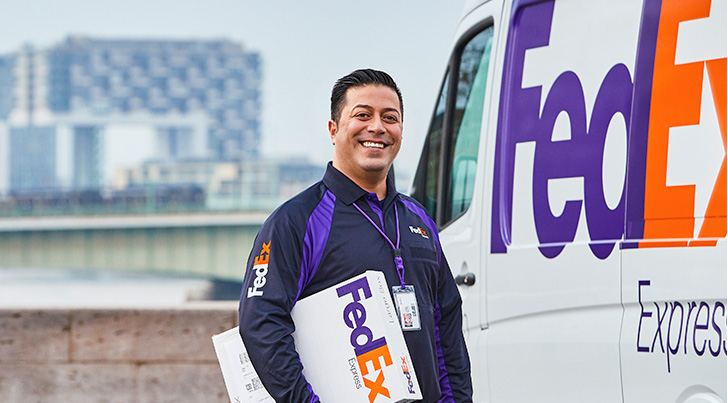
By directly addressing the fear of delay and urgent needs of consumers through the notion of overnight deliveries, this enables FedEx to position itself as the go-to solution for high-stake moments where a delay could result in significant consequences.
Along with its diverse service offerings and advanced technologies, FedEx has built a strong brand reputation of reliability and speed for itself, becoming an essential delivery partner for individuals and businesses over the years.
With these examples, it is clear that fear-based branding is a powerful motivator, which poses the opportunity for brands to better differentiate themselves in a competitive landscape that is crowded with messages of positivity. By framing around consumers’ fears, brands can create a sense of urgency and relevance that resonates deeply to shape consumer behaviour as intended. As they say, if you don’t try, you’ll still wake up everyday wondering – so, are you still torn between fear and thrill? Happy Halloween from Labbrand.
Jessica Tan
Labbrand Singapore
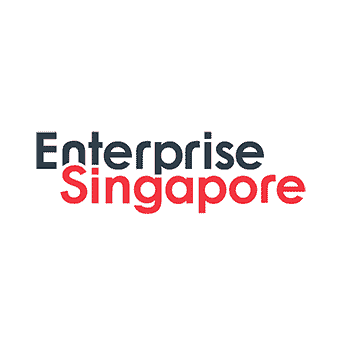
Labbrand Singapore has certified consultants on board to navigate the Enterprise Development Grant (EDG) process to see how you can get up to 50% government grant from Enterprise Singapore (ESG) for EDG projects.
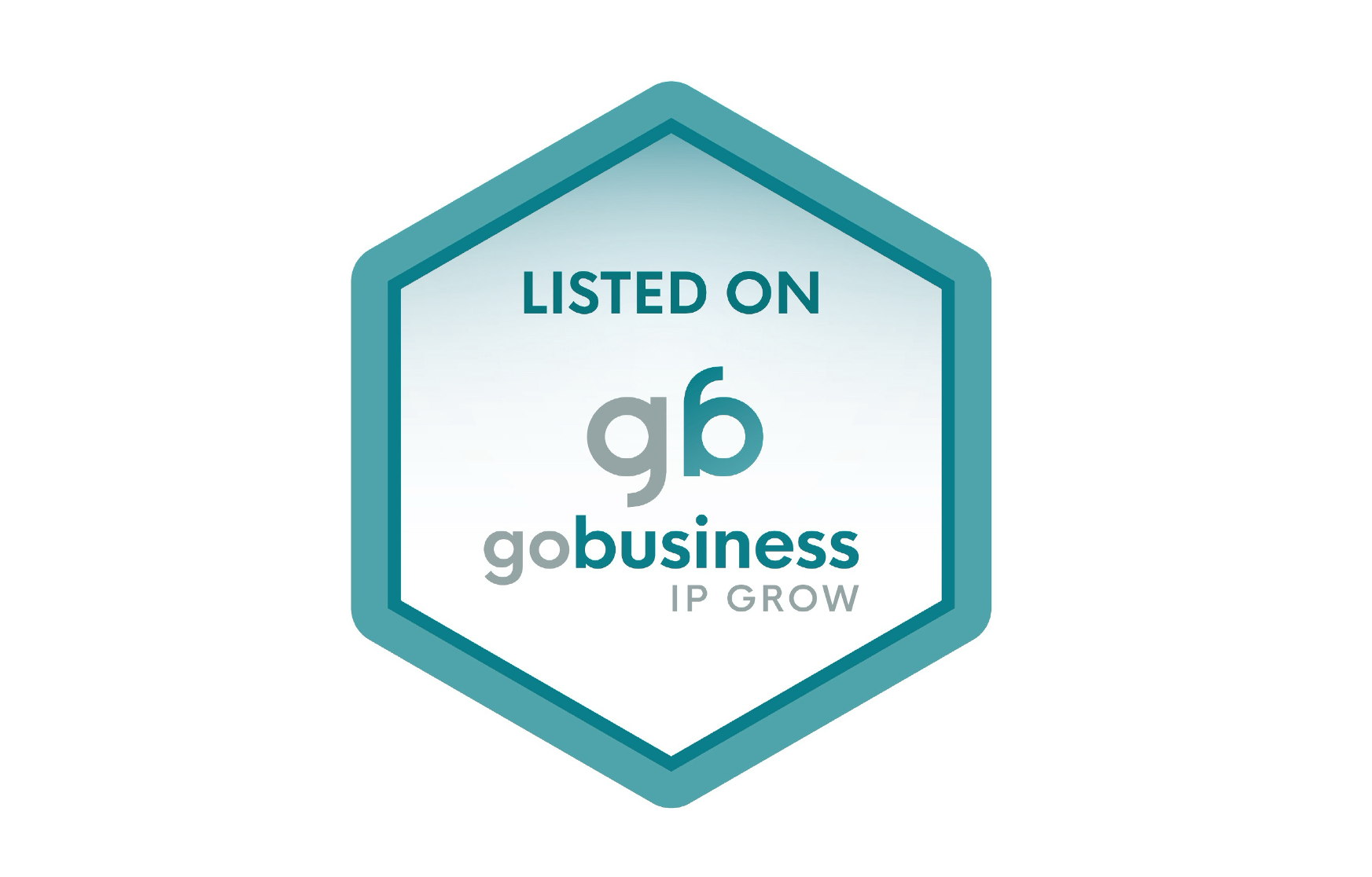
Labbrand Singapore is a registered Branding Strategy expert on GoBusiness IP Grow, the new Intangible Assets (IA) and Intellectual Property (IP) services platform launched in Singapore to help enterprises grow and protect their business globally.
This is developed in collaboration with the Ministry of Trade and Industry, the Government Technology Agency, the Smart National and Digital Government Office, the Intellectual Property Office of Singapore, and IPOS International.

Jessalynn is based in Singapore to lead the development and growth of Labbrand in the Southeast Asia region. Passionate about business transformation, experience creation, marketing strategies, brand innovation, placemaking and retail design, Jess has directed and delivered meaningful brand experiences, receiving awards and accolade recognition in 13 international competitions.
We have a strong brand and reputation among local, regional and international clients in our ability to help them tackle this unique and challenging environment. Adopting the Silk Road ideology, our team is here to guide our clients through a discovery journey into the China market.
We leverage our deep expertise and exemplary global support from offices overseas to ensure strong project turnaround and accountability, fostered by local understanding and specific client needs.
As your guiding partner in brand innovation, we understand the importance of innovation ourselves. We are a pioneer in Brand Tech combining branding strategies with the power of technology by fronting new initiatives in Labs3.io, and collaborating through innovative brand partnerships to fuel our expertise in specialized areas.
We have experience working on very diverse projects. We take pride in understanding our clients by asking the right questions and immersing ourselves entirely. Our client-first approach means selling only services that matter, giving a right fit scope by tailoring different aspects of our brand methodologies, pricing and packages to best support our clients' utmost needs.
From creating brand identities and innovation, to digital experiences and cultural transformation, our multi-disciplinary and cross-functional teams are always ready to share our expertise through a non-silo, collaborative approach with our clients. We are a guiding partner in the creation of brand value, delivering strong brand transformations.
A Labbrand Group Company © 2005-2024 Labbrand All rights reserved
沪ICP备17001253号-3* Will be used in accordance with our Privacy Policy
To improve your experience, we use cookies to provide social media features, offer you content that targets your particular interests, and analyse the performance of our advertising campaigns. By clicking on “Accept” you consent to all cookies. You also have the option to click “Reject” to limit the use of certain types of cookies. Please be aware that rejecting cookies may affect your website browsing experience and limit the use of some personalised features.